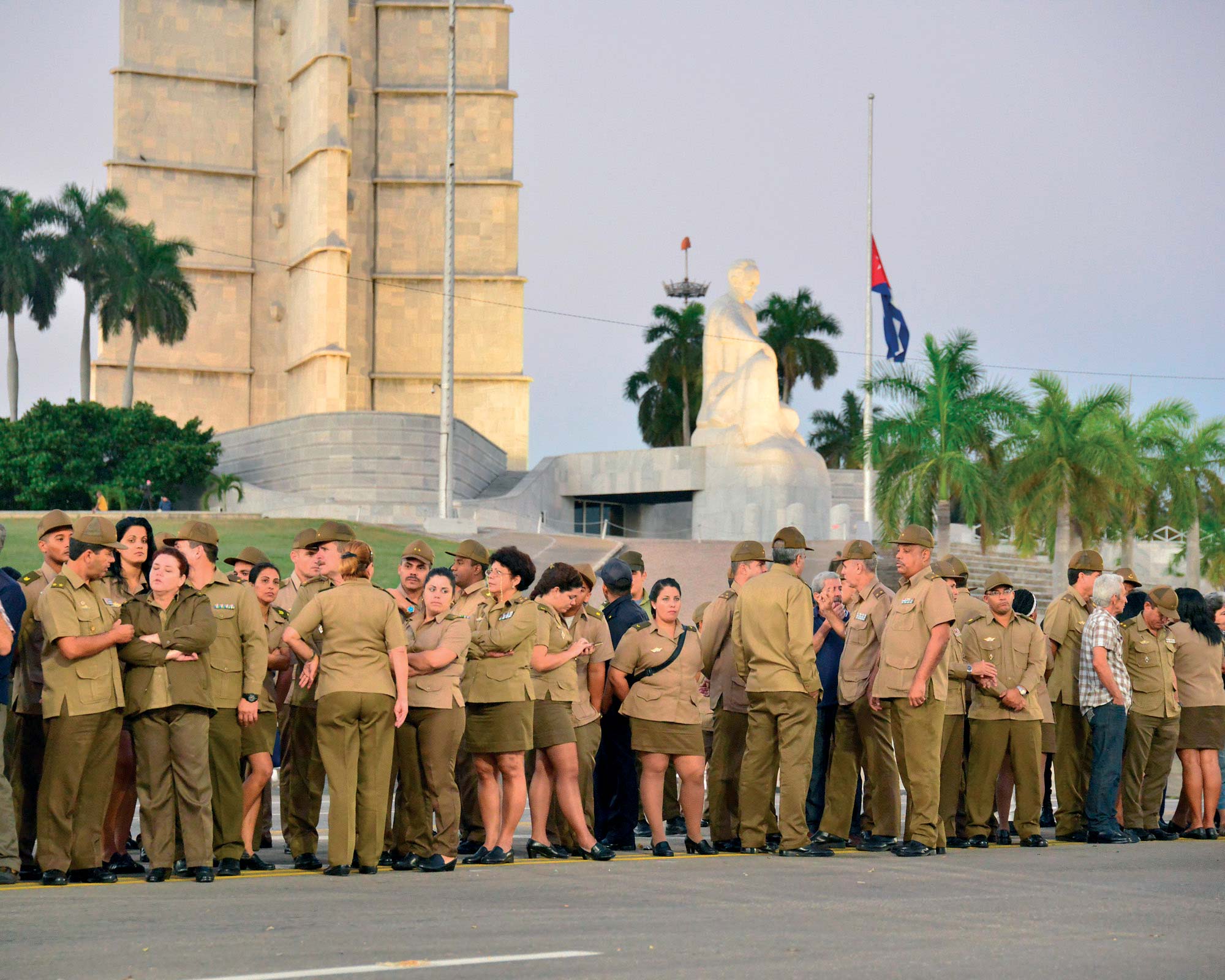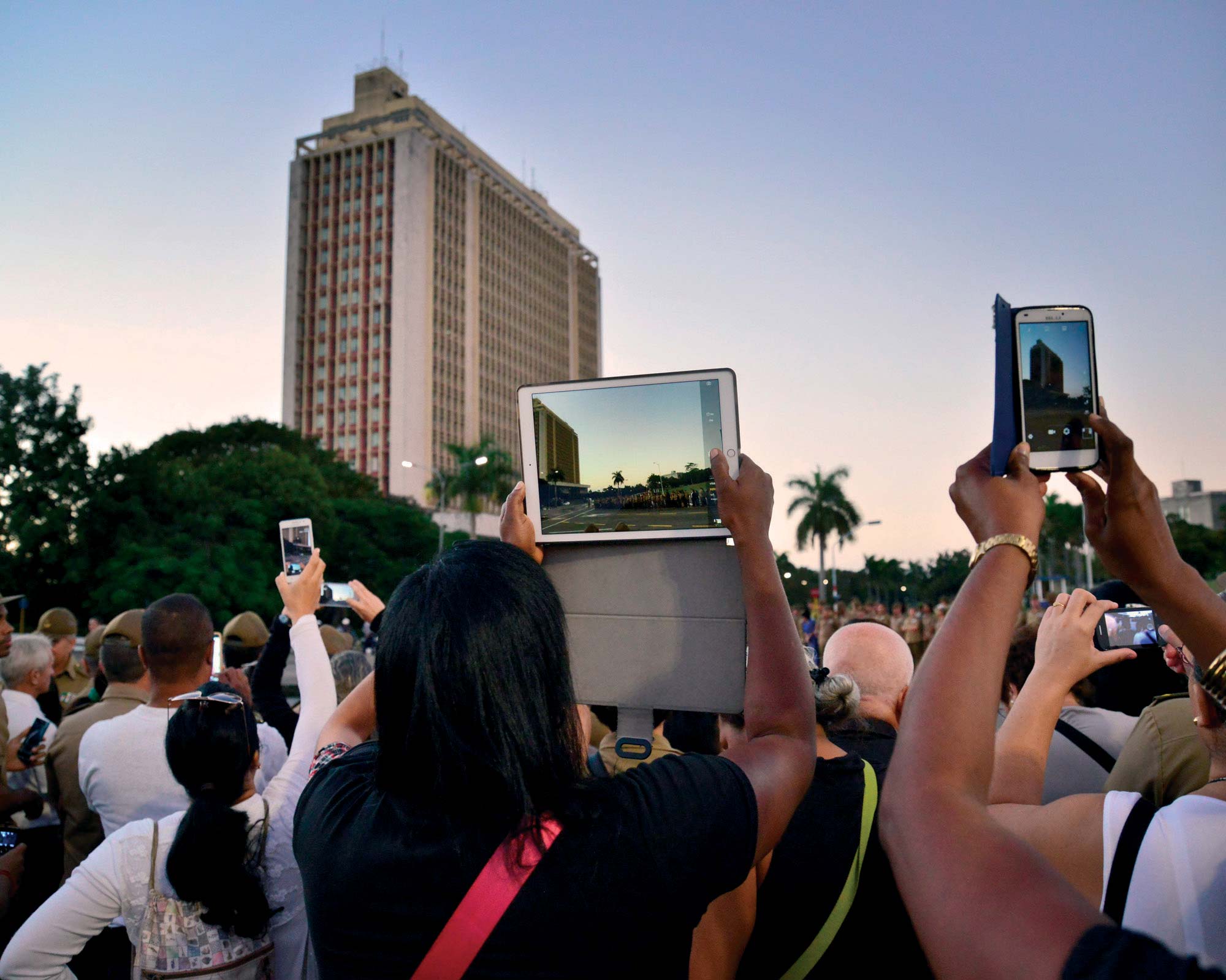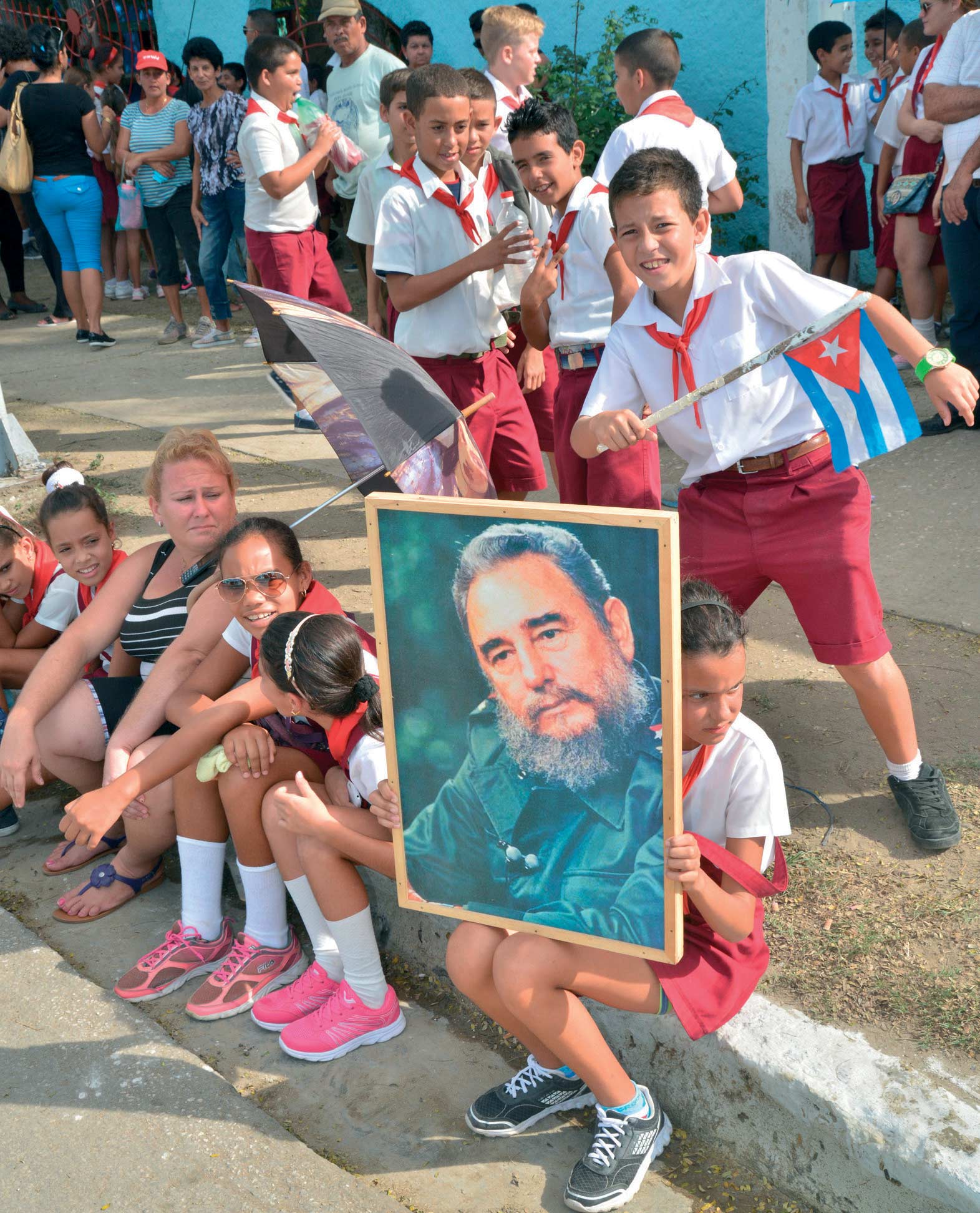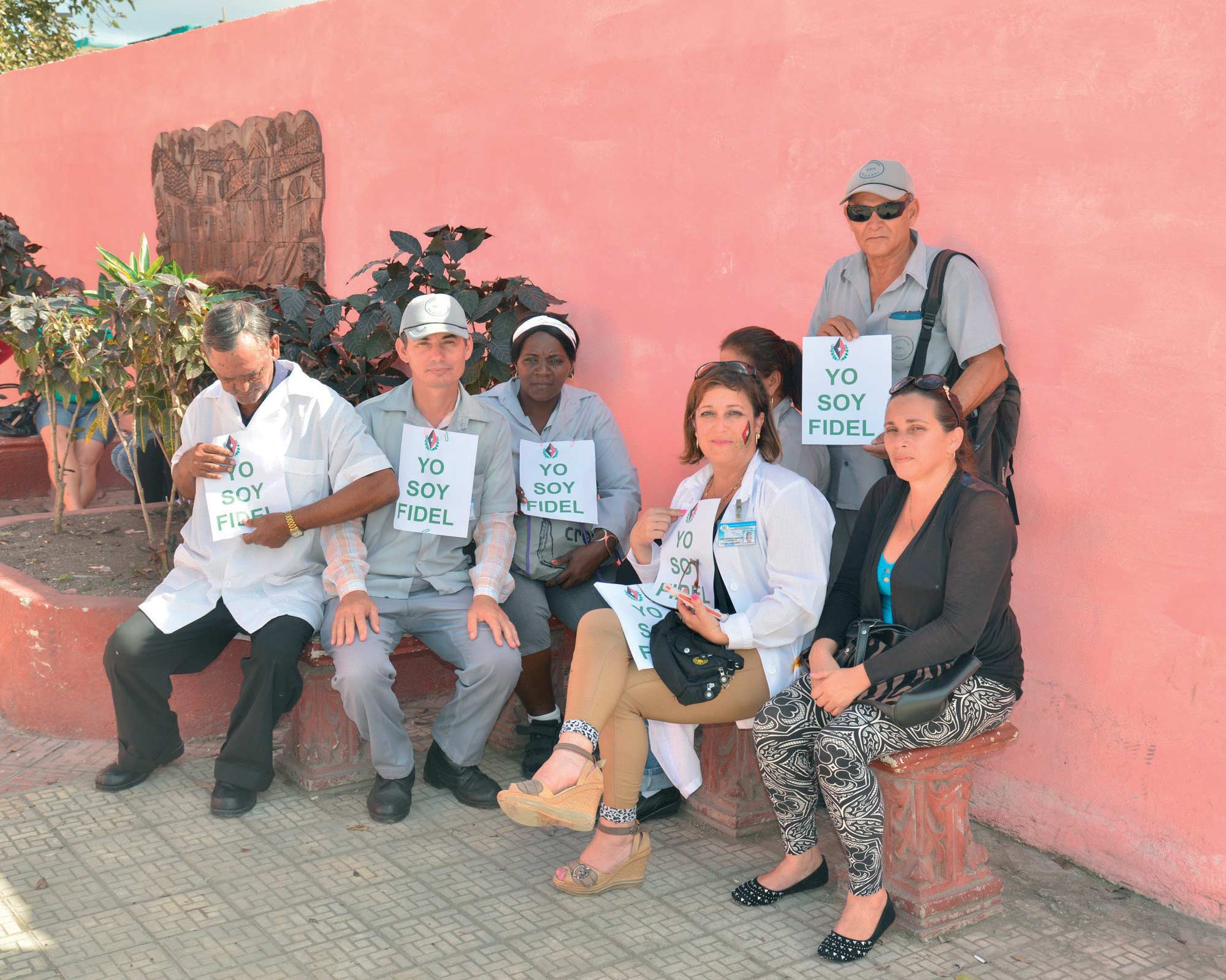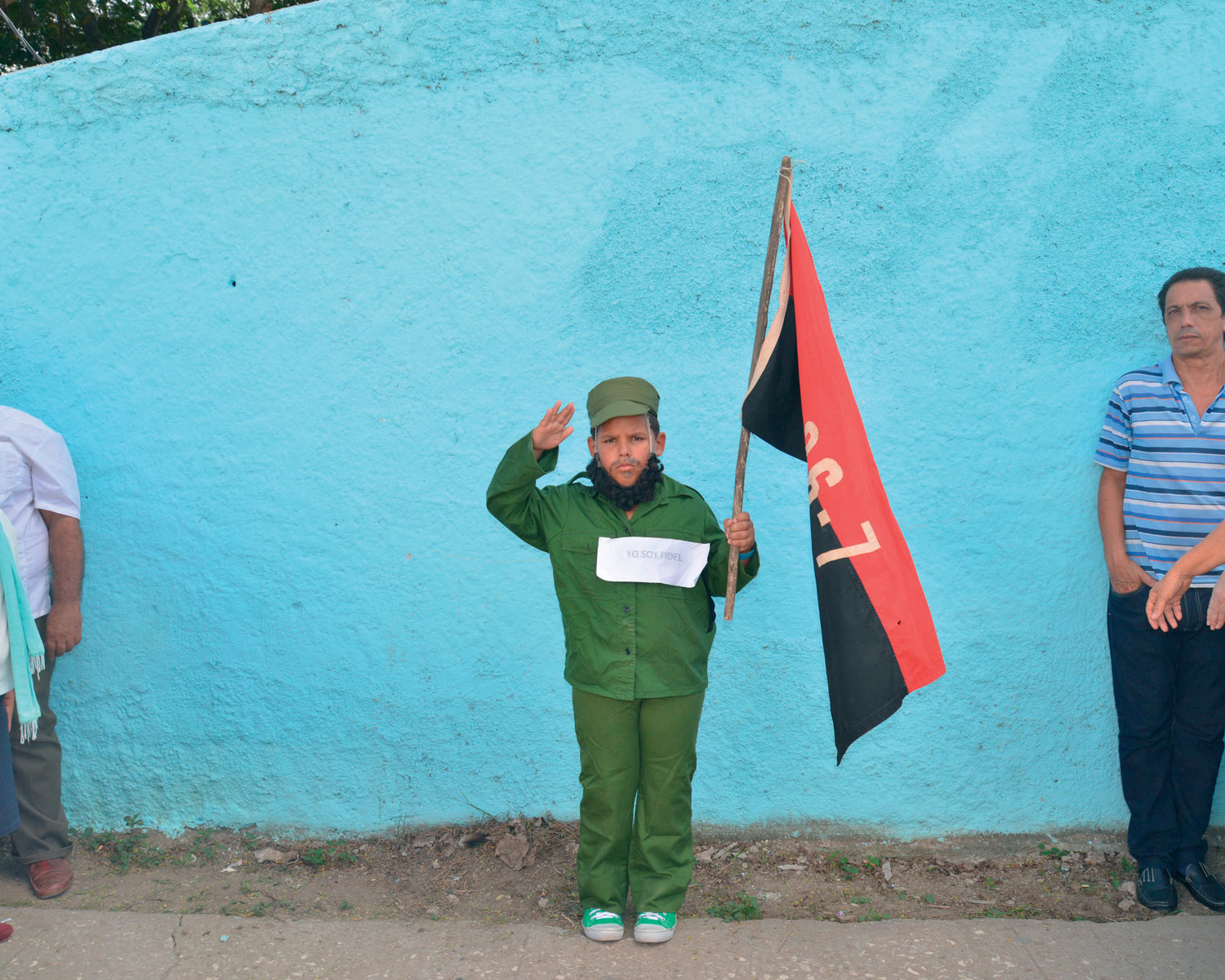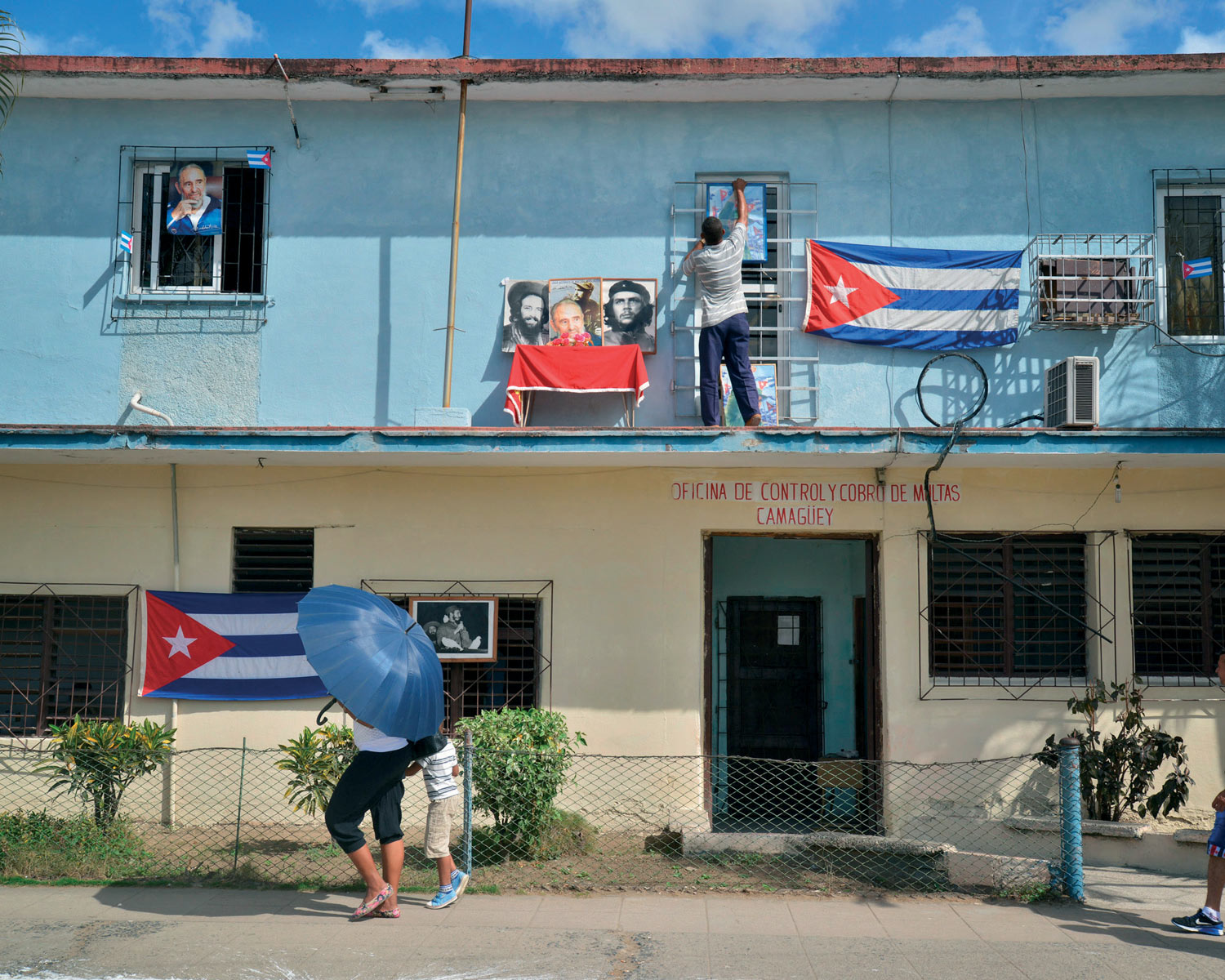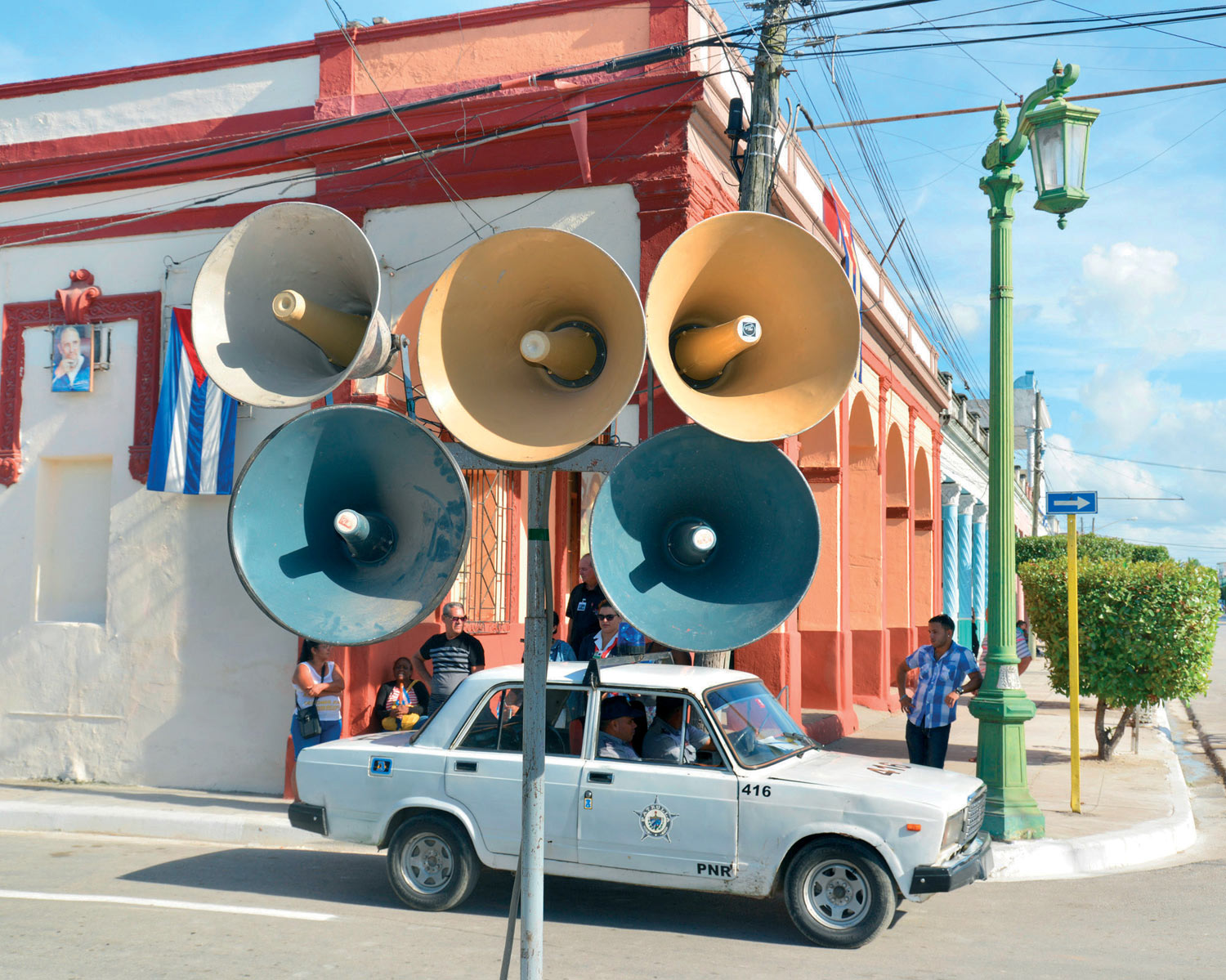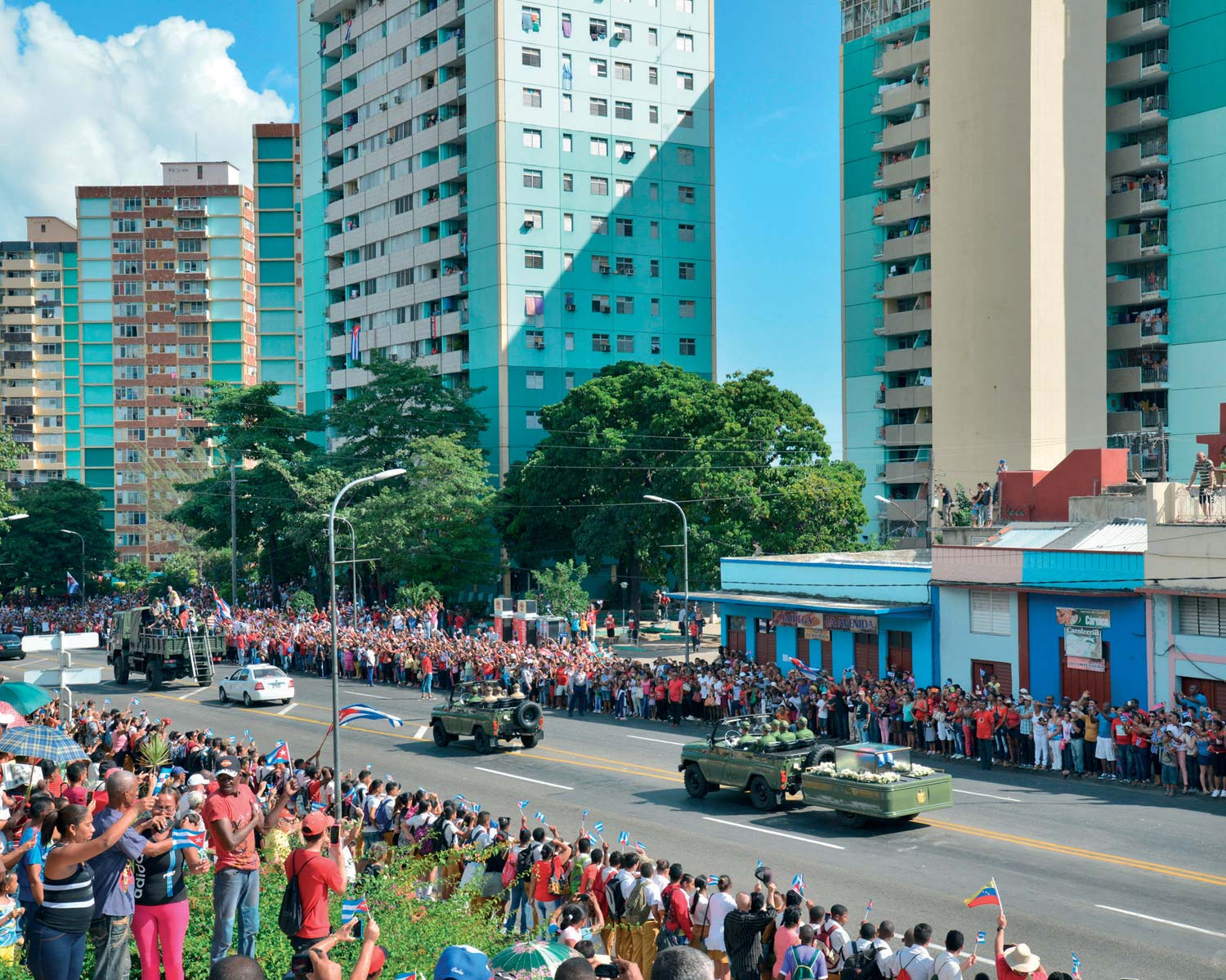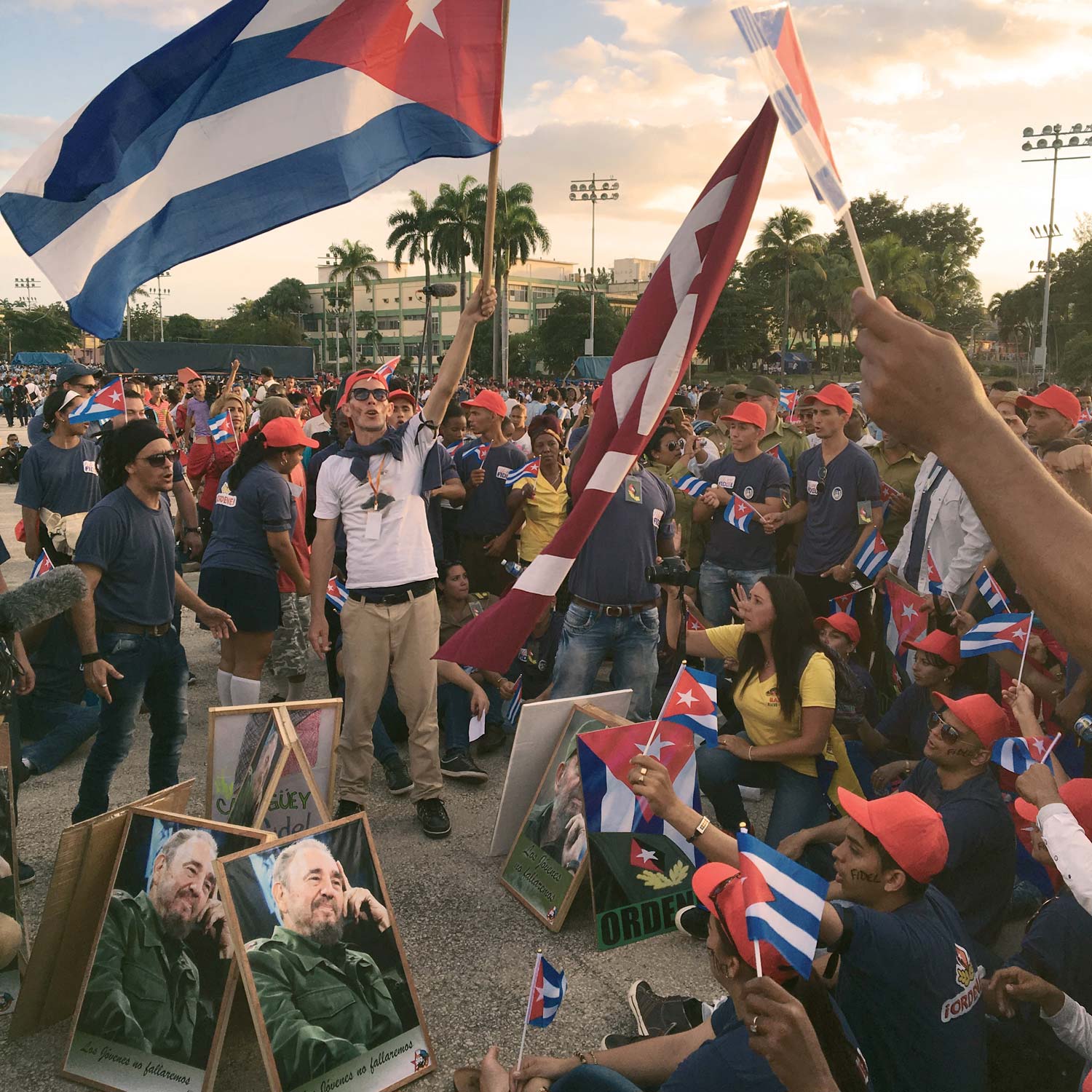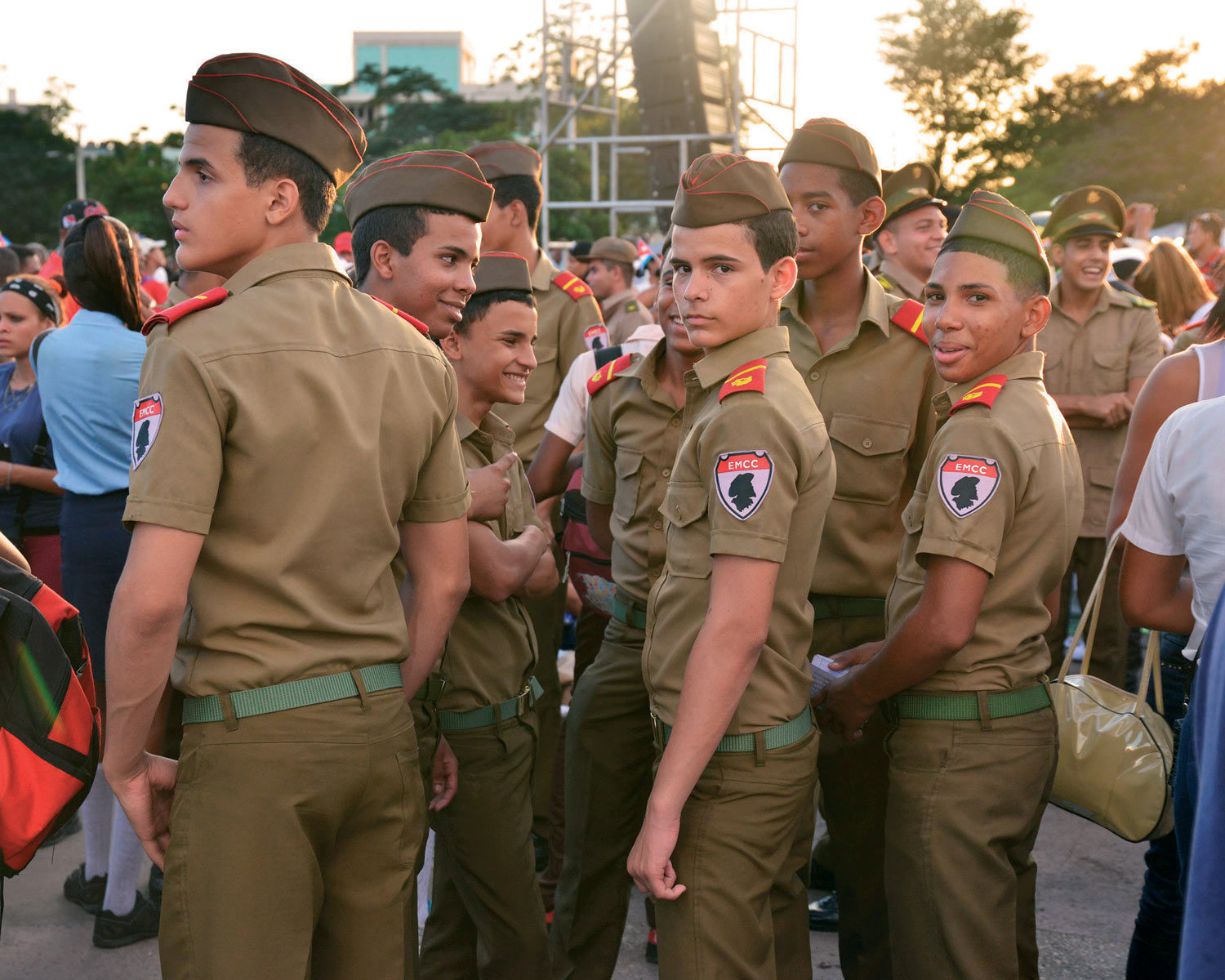Caravan of Freedom
Nicola Lo Calzo
The funeral procession approaches. Hundreds of flags wave in the air, the cries and elated voices of the spectators resound. Then, suddenly, silence falls. People gather, cell phones take aim. The scattered voices unite in crying, ‘Yo Soy Fidel!’ The procession carrying Fidel Castro’s ashes is passing. In seconds, everything is over, the crowd breaks apart, the roads reopen to traffic and people return to normal life.
For three days, the time it took for the hearse carrying the former Cuban leader’s ashes to travel from Santiago to Havana, this scene is repeated. These nine-hundred kilometers of roads parallel the same journey made in 1959, when Castro, victorious in the most publicized Revolution of the twentieth century, traveled from the eastern city to the capital. The march was unambiguously called the ‘Caravan of Freedom’.
Cubans took to the streets in such large numbers to pay a final tribute to the padre de la Revolución for many reasons: political, ideological, emotional. But behind the tears of grief, the many sad faces, the nostalgia, Cuba’s tireless bureaucratic machine continued to work at full capacity.
The event was meticulously coordinated down to each pause in the procession. Schools, hospitals and every state company – closed for nine days of national mourning – were mobilized with military discipline to ensure students and employees were arranged along the roads.
‘The most radical revolutionary will become a conservative the day after the revolution,’ writes Hannah Arendt in her clinical analysis of the phenomenology of state power and totalitarianism, and nowhere does this apply more than in Cuba. Cuba is an inextricable tangle of passionate emotion and regulation. It is the ground of an endless struggle between human needs and desires, and the bureaucratic requirements of order and power.
The sidewalks burns under the sun. The laughter and winking gestures of the young mix with the solemn, austere cries of older veterans. The Cubans, some attentive, some distracted, wait patiently for the arrival of the Caravan.
They wait with a liturgical sense of duty. They wait with imperturbable dignity. After 57 years of a one-party government, they’ve had no choice but to learn how to wait.
Photographs © Nicola Lo Calzo – L’agence à Paris




